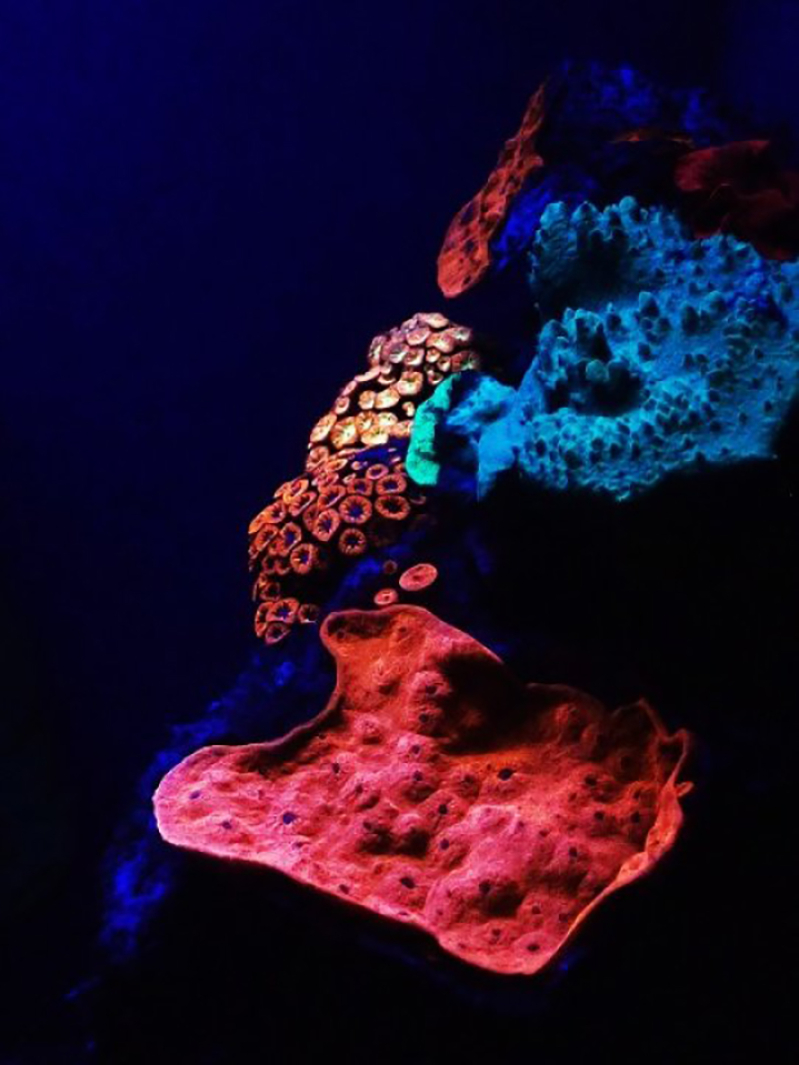
A group of scientists have recently discovered a type of coral that may be applicable to cancer research, amongst other medical uses.
Found in the Red Sea, this marine organism is notable for florescence when exposed under ultraviolet light. Researchers were surprised to see the coral glowing in red, green, and orange coloring. More common shallow water coral only glow in fluorescent green.
"Since only the blue parts of the sunlight penetrate to depths greater than 50 meters, we were not expecting to see any red coloration around," said Head of University of Southampton's Coral Reef Laboratory, Jörg Wiedenmann - according to Daily Mail.
"To our surprise, we found a number of corals showing an intense green or orange glow. This could only be due to the presence of fluorescent pigments."
Wiedenmann believes that the coral's pigment may be used to "highlight living cells or cellular structures of interest under the microscope" in future medical studies. The technique is commonly referred to as biomedical imaging.
"This could be applied to track cancer cells or as tools to screen for new drugs," Wiedenmann explained.
Little is known about the mysterious coral due to the great depth where it thrives, and the limitations of Scuba techniques and technology. Nonetheless, the research team was able to work around such difficulties.
"Advances in technical diving have enabled us to explore coral communities from these deeper waters," explained Gal Eyal, a PHD candidate from the Interuniversity Institute for Marines Sciences in Israel.
Shallow Water Vs Deepwater Coral
What makes the deepwater coral unusual is that it retains florescence even though light barely penetrates into the area it resides. Shallow water coral use florescence as a form of sunscreen due to their lengthy exposure to sunlight. This pigment also protects the symbiotic algae clinging to the shallow coral's surface.
"In many shallow water corals, the production of the pigments is tightly controlled by the amount and color of the incidental light," Dr. Cecilia D'Angelo of Southampton explained to The Blaze. "In the majority of our deep water species, the pigment production is essentially independent from the light exposure of the coral animals."
Efforts to study the unusual deepwater coral were coordinated by an international team of scientists. Some of the researchers hailed from the University of Southampton in U.K. Others came from the Tel Aviv University and Interuniversity Institute for Marines Sciences in Israel. The team published its findings in the PLOS ONE research journal.







